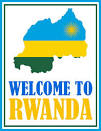This is a cross post by Ghaffar Hussain of Quilliam, from the Telegraph
Whilst the death of the world’s most wanted man, in a dramatic raid by elite US Navy Seals, bought relief to many in the US and around the world, it also bought to the surface a number of lazy assumptions that many still harbour about al-Qaeda as an organisation and bin Laden as an individual. From listening to radio talk shows and reading discussions on online forums, I gathered that many still view al-Qaeda as an entirely reactive movement responding to western aggression against Muslims and defending to weak and down-trodden against imperialist regimes in the only way they know how. Such an analysis points to a failure to see through the propaganda and understand what al-Qaeda really stands for.
All accounts of bin Laden’s early life reveal that he was exposed to and influenced the works of leading Islamist ideologues such as Syed Qutb whilst studying at King Abdul Aziz University in Jeddah in the late 1970s. Qutb had argued for the creation of a vanguard movement that would forcibly remove what he deemed ‘un-Islamic’ governments and replace them with ones that reflected his interpretation of Islam. An interpretation that re-invented Islam as a totalitarian political ideology largely informed by European totalitarian political ideologies such as communism and fascism. This he believed was an Islamic obligation and those who failed to understand this had apostatised from Islam.
As well as being influenced by the works of Qutb, bin Laden was also raised in the ultra-conservative religious environment of Saudi Arabia where Muslims not following the state’s adopted interpretation of Islam, Wahabism, were denounced and persecuted. The fusion of an ultra-conservative and ultimately vacuous approach to theology, combined with the revolutionary political framework provided by Qutb was only ever going to produce an ideology that seeks to establish itself through violence and persecutes all those who disagree with it. Therefore, the immediate aim of al-Qaeda, once it had been established, was to forcibly overthrow all regimes in Muslim majority countries. Their opposition to these regimes wasn’t based on the fact that they were corrupt or inefficient but rather they were not implementing their interpretation or re-invention of Islam as a totalitarian political ideology.
But in order to attract wider support in Muslim societies al-Qaeda strategists sought to presents themselves as defenders of Muslim causes and the alternative to the corrupt and dictatorial regimes in the MENA region and beyond. By targeting the far enemy (the west) they sought to tap into existing anti-western sentiment and popularise their narrative which interprets all western actions as being motivated by a hatred of Islam and Muslims. This was how western interventions to liberate Kuwait and Kosovo were interpreted. However, when al-Qaeda was allowed to govern some regions in Iraq at the height of the insurgency they immediately alienated the locals with their harsh stipulations and barbaric punishments. Since then, they have been in deep decline.
Al-Qaeda is a pro-active movement that has a political agenda for the world. It seeks to overthrow all Muslim majority governments and establish theocratic ones run by unelected clerics who persecute minorities and enforce their will by an extremely harsh penal code. Al-Qaeda should not be seen as a defensive movement that has arisen to defend the oppressed Muslims, rather they are ones doing the oppression and what they have in mind for Muslim majority societies is far worse than what has been visited upon them by outside powers up until now.


